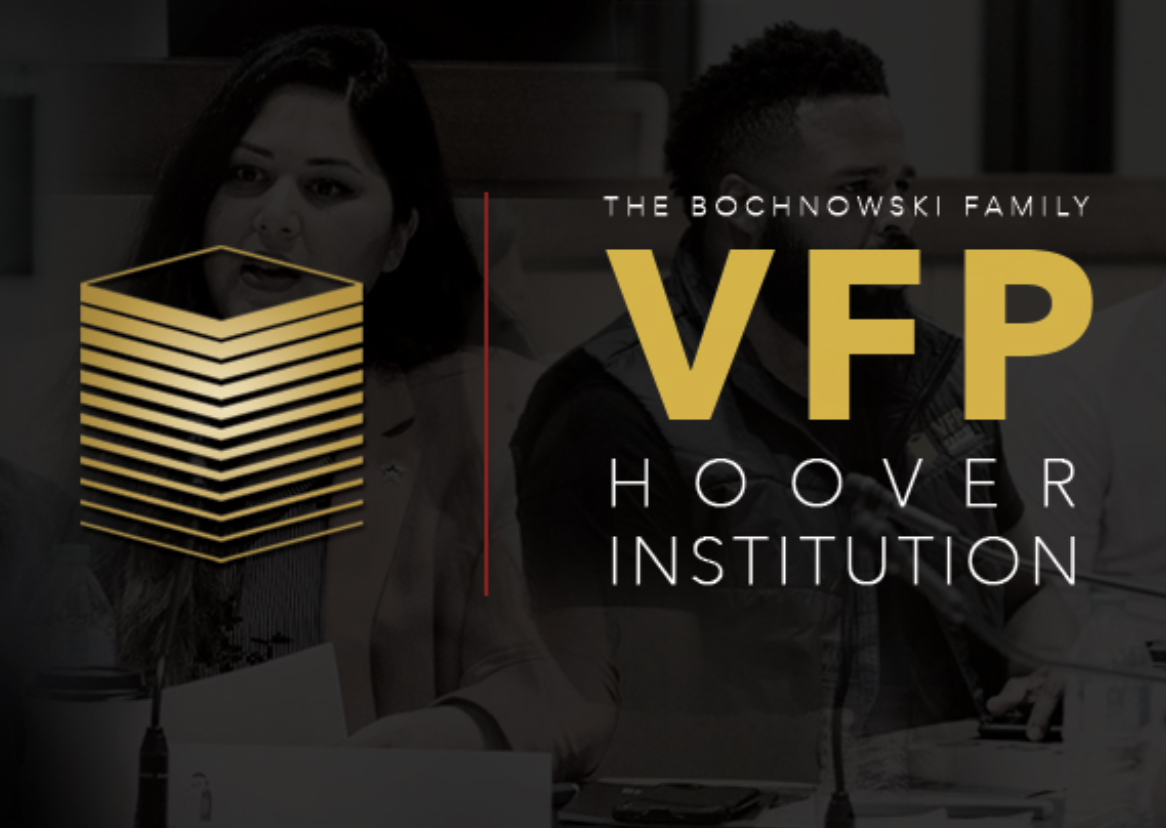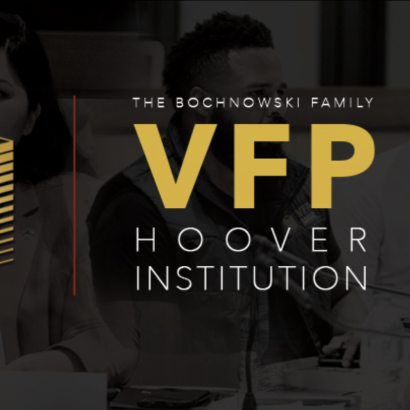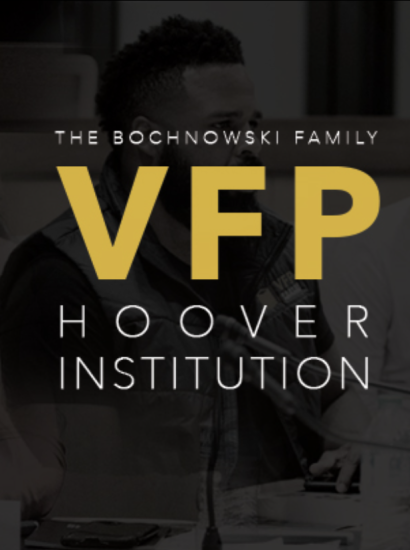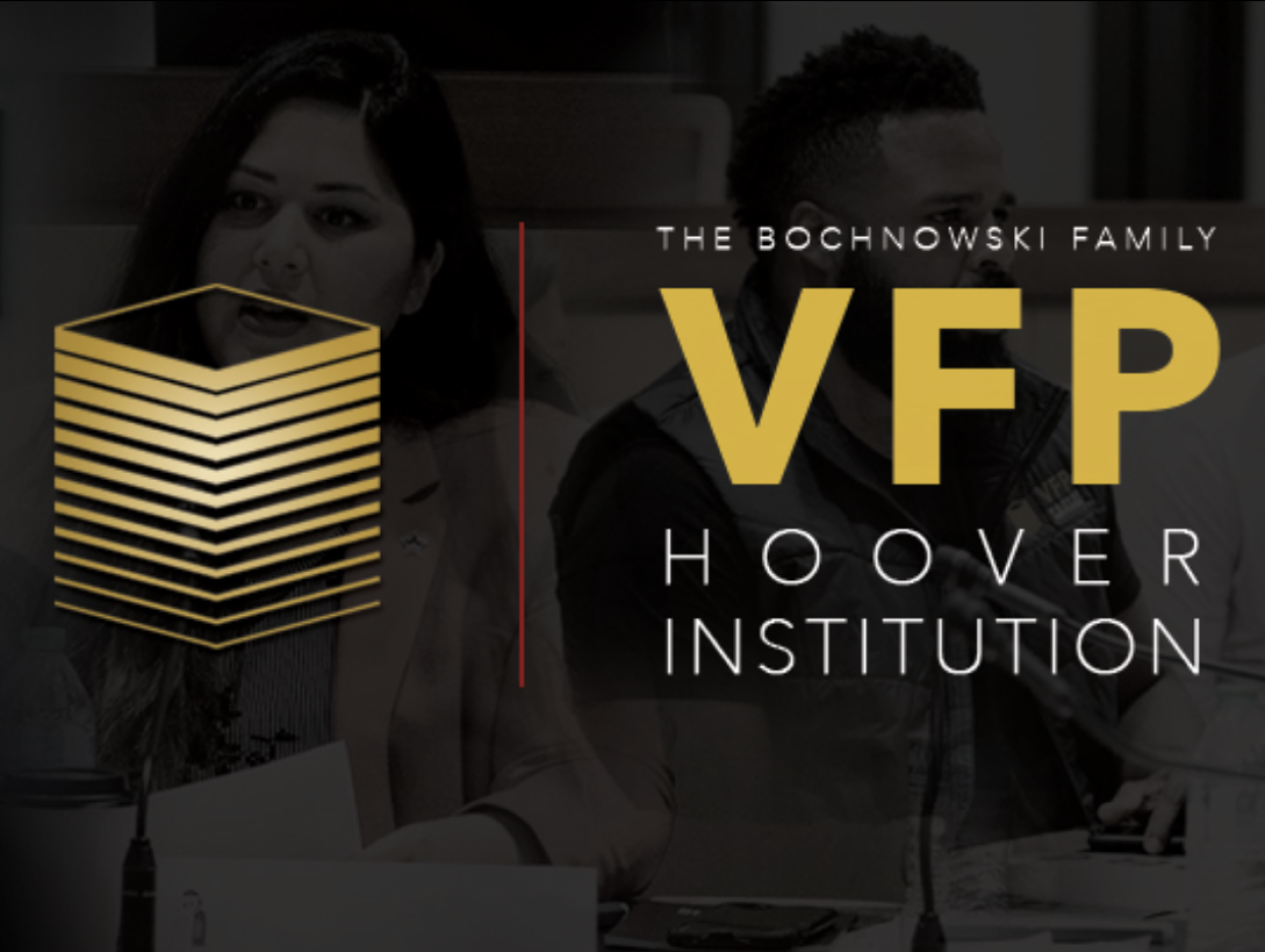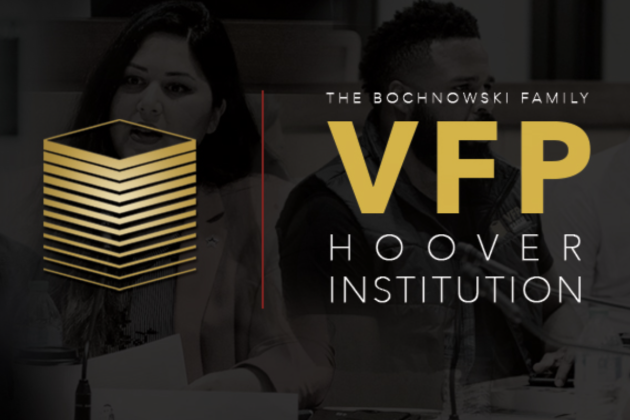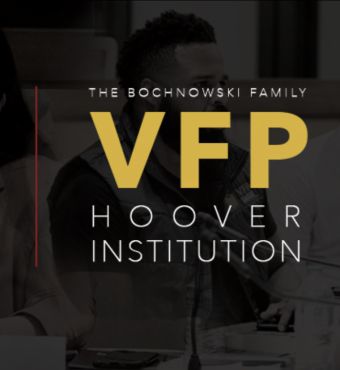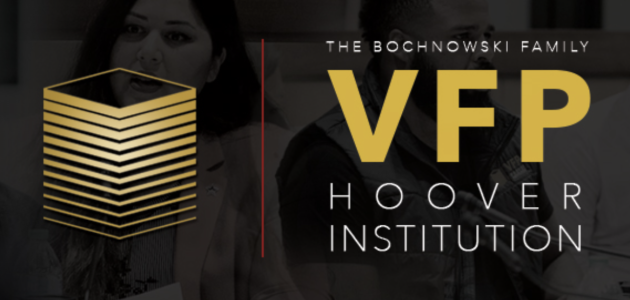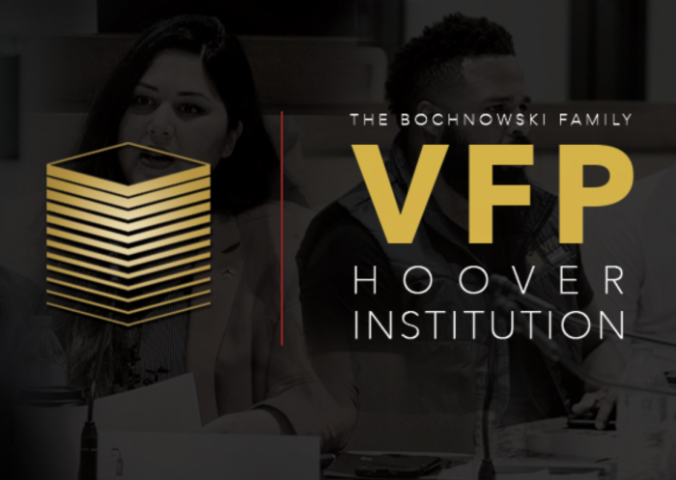Hoover Institution (Stanford, CA) – The Hoover Institution is pleased to announce the 2025–26 class of the Bochnowski Family Veteran Fellowship Program (VFP).
This is the fifth class since the fellowship was launched in fall 2021. The 2025–26 group comprises eleven veterans, representing a diverse collection of skillsets and records of service to the US armed forces.
Veterans were selected based on their demonstrated leadership qualities and success in their professional careers, the viability of their proposed capstone projects, and their shared values with the Hoover Institution, especially their commitment to advancing freedom.
The program is designed for military veterans who are motivated to effect meaningful change in their communities. During their time in the program, veteran fellows will have the opportunity to leverage the resources and expertise of Hoover and Stanford scholars, expand their networks, and advance efforts to find actionable solutions to policy challenges through their capstone projects.
All members of the VFP have served in the US military within the past two decades, during the years following the attacks of September 11, 2001, and the declaration of the war on terror. As demonstrated by previous cohorts, these veterans’ service to the nation is unremitting. Moreover, they come to Hoover with high levels of skill, dynamism, and intellectual curiosity to grapple with complex policy challenges.
In 2023 the VFP was excited to announce that the program was endowed through the generosity of the Bochnowski Family.
“The Hoover Veteran Fellowship Program attracts exceptional individuals who bring principled leadership, innovative thinking, and a deep commitment to civic impact, qualities our country needs now more than ever,” said Jim Bochnowski, a US Army veteran and Hoover Institution overseer.
This year’s class will confront pressing national challenges with their capstone projects, including work advancing US biosecurity standards, responsible use of AI to build trust in state and local governments, efforts to address vulnerabilities in critical infrastructure, and a program to help veterans better access the benefits provided by the Department of Veterans Affairs (VA).
The fellowship program will involve various gatherings during the academic year at the Stanford University campus and Hoover’s Washington, DC, offices. These include the program launch in fall 2025; a presentation of the fellows’ capstone project proposals to the VFP Advisory Council in February 2026; and two additional modules in which they can work on their capstone projects and connect with other members of their cohort and the broader Hoover and Stanford communities. At the end of their one-year fellowship, current participants will join the annual alumni engagement, Hoover’s Roll Call, which will showcase the leading capstone projects and provide an opportunity to connect with the Hoover community about their experience in the Veteran Fellowship Program.
The 2025–26 VFP class features the following eleven veterans:
Stacy Bare is a National Geographic Adventurer of the Year and a pioneer in promoting time outdoors as a form of healthcare. He is currently the executive director of Friends of Grand Rapids Parks. His work focuses on increasing access to parks, trees, and trails for all. He is a US Army veteran with deployments to Bosnia and Iraq. He conducted land mine clearance in Angola and the Republic of Georgia.
Dwight Boddorf is the borough manager of Tarentum, Pennsylvania, and a Marine Corps veteran of Operation Iraqi Freedom. A Purple Heart recipient, he focuses on strengthening local government through practical improvements in public services, community development, and regional cooperation.
Lindsey Chrismon, a 2014 graduate of West Point and former first captain, made history as the first woman ever to fly the AH-6M Little Bird attack helicopter for the US Army’s 160th Special Operations. She earned her MBA from Harvard Business School and is now cofounder and CEO of Oply, an AI-powered home management platform. She focuses on advancing responsible innovation at the intersection of AI, policy, and entrepreneurship.
Allen “AJ” Edwards, CBCP, MEP, is a resiliency practitioner, veteran, and founder of AJ Edwards Consulting. With over fifteen years of experience in emergency management, CBRN (chemical, biological, radiological, and nuclear) defense, and business continuity, he has advised military, government, and educational institutions on resilience and crisis preparedness. Through his consulting practice, Edwards develops innovative strategies to strengthen school safety, continuity planning, and organizational resilience in the face of complex threats.
Dan Futrell is the founder of Polymath University—a new nonprofit university that is interdisciplinary, apprenticeship-based, and debt free. Futrell previously served as CEO of the Pat Tillman Foundation, is a former local elected official, and served as an airborne ranger–qualified infantry officer at home and abroad for more than five years. A former foster youth, he now holds bachelor’s and master’s degrees from Gonzaga and Harvard Universities, respectively.
Vishaal “V8” Hariprasad is the cofounder and CEO of Resilience, a cyber risk management startup. He is a lieutenant colonel in the US Air Force Reserve, serving as a cyber effects operations officer. He cofounded Morta Security (acquired by Palo Alto Networks) and was a partner at the Pentagon’s Defense Innovation Unit. Hariprasad holds a BS in mathematics from the US Air Force Academy and multiple cybersecurity patents.
Erik Malmstrom is CEO of SafeTraces, a leading dual-use technology company focused on predicting, detecting, and preventing biological threats. Previously, he cofounded CrossBoundary and is an alumnus of Cargill, FBN, and the White House Fellowship. Malmstrom is a combat veteran and graduate of US Army Ranger and Airborne Schools. He received his undergraduate degree from the University of Pennsylvania and a joint MBA-MPP from Harvard Business and Kennedy Schools.
Jennifer (Jenna) Moffit served four years in the US Air Force as an air traffic controller and is a proud military spouse. She currently serves as a congressional fellow in the House of Representatives and as a program manager at the US Department of Veterans Affairs. Dr. Moffit holds a doctorate in law and policy from Northeastern University and is dedicated to advancing thoughtful, inclusive policy for women veterans, military families, and youth caregivers.
David Plaster is the founder of NGO Anomaly and cofounder of the Kyiv Center for Defense Policy. Based in Ukraine since 2012, he has led initiatives in tactical medicine, demining standards, and veteran transition while advising on NATO-aligned defense reforms. His work bridges frontline implementation with strategic policy to strengthen Ukraine’s resilience.
Nelson Rouleau is the CEO and cofounder of VetScore, an AI-powered platform transforming how veterans prepare for VA disability claims. A retired Air Force colonel with thirty years of strategic leadership, he has commanded at multiple levels and served twice in the Pentagon, helping craft the 2022 National Defense Strategy. He now advises senior leaders and coaches executives across defense and industry.
Jansen Weaver is a leader at the intersection of technology, finance, and national security. He is the chief business officer of Peripheral, an AI decision intelligence startup, and also serves as a Marine attaché in the Marine Corps Reserves. His leadership is informed by active-duty Marine service and a corporate background in investment banking, consulting, and tech. He is a term member on the Council on Foreign Relations.
For coverage opportunities, contact Jeffrey Marschner, 202-760-3187, jmarsch@stanford.edu.
To learn more about Hoover’s Veteran Fellowship Program, click here.







